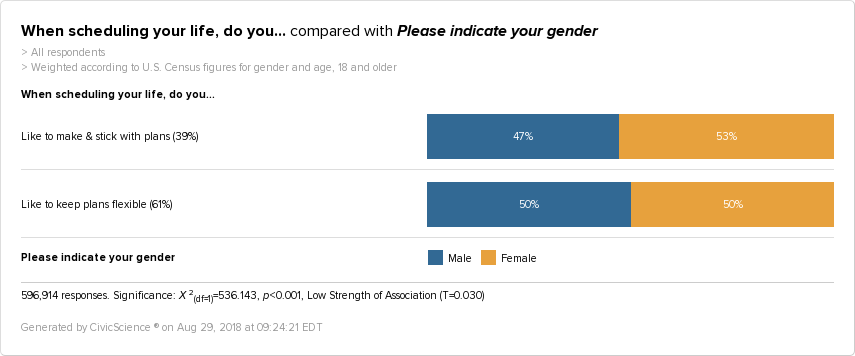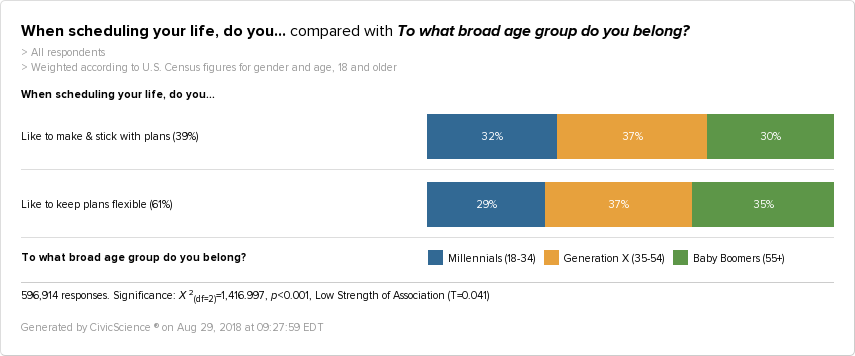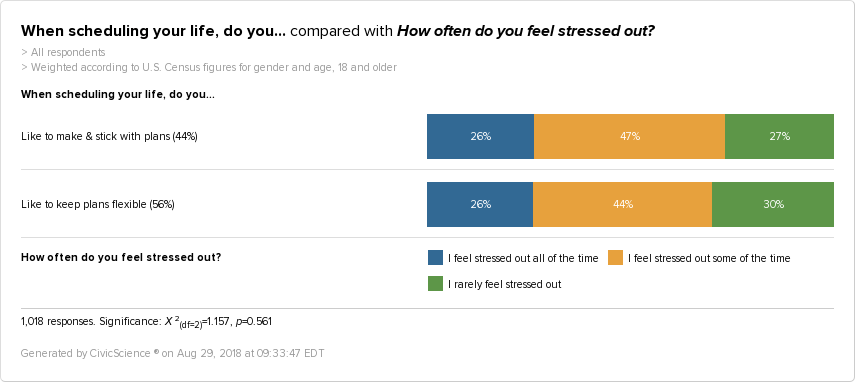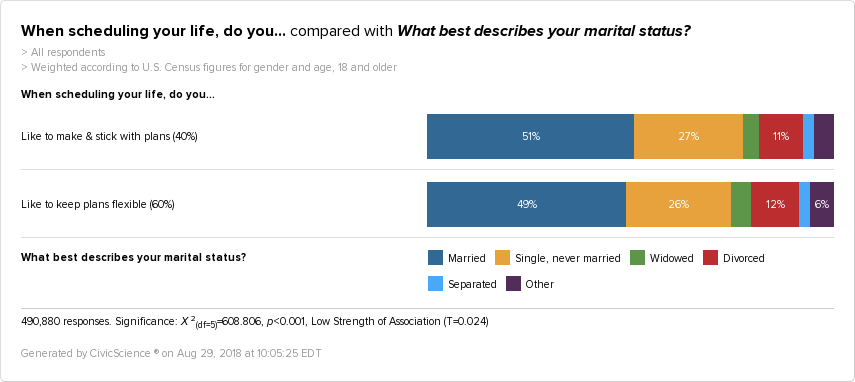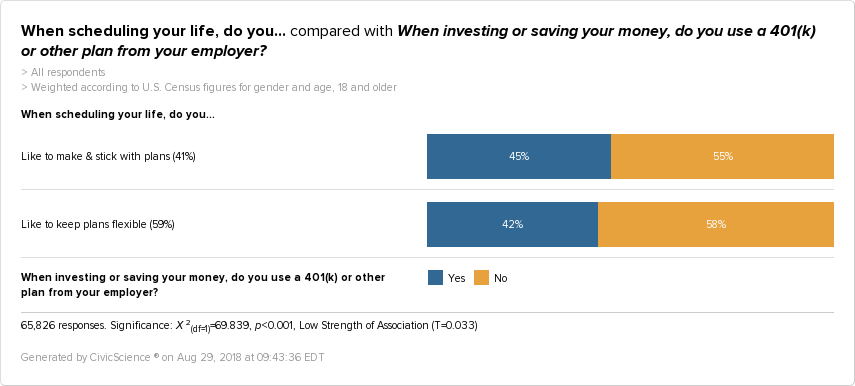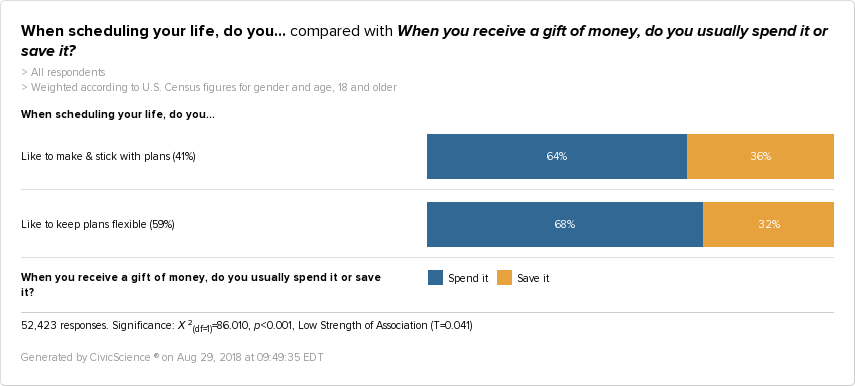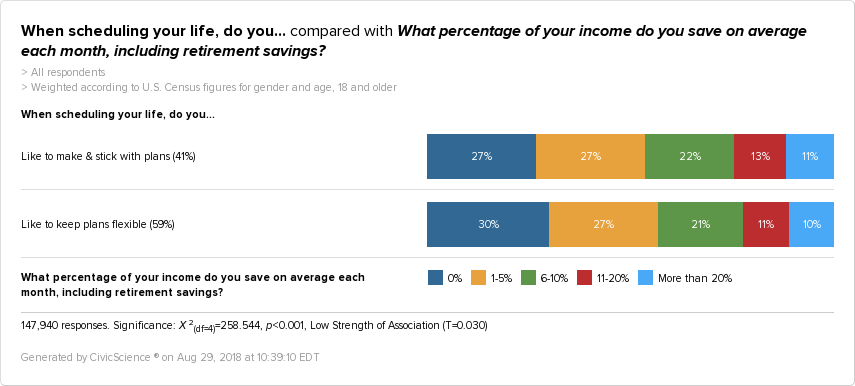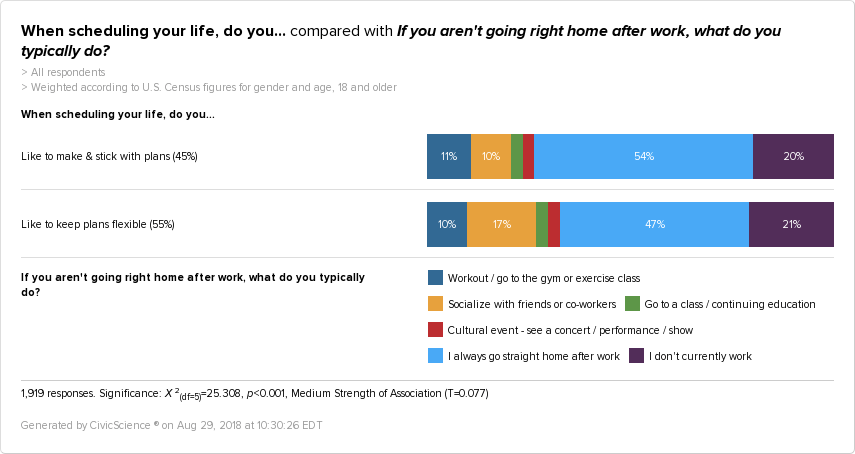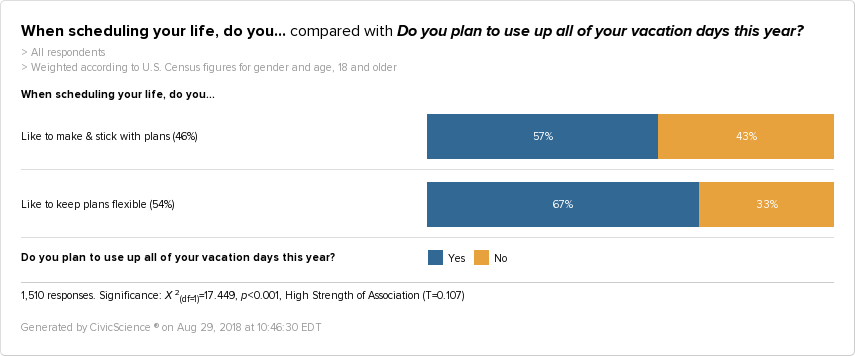These days, making plans can be difficult. Between work and personal commitments, it can feel as though piecing together a schedule–especially one that prioritizes relationships and healthy habits–can be a challenge. CivicScience asked over 500,000 U.S. adults about how they like to schedule their lives.
According to the data, 61% of respondents prefer to keep plans flexible.
In terms of gender, 53% of women would prefer to make plans and stick to them. But of those who like to keep things flexible, it’s an even split.
It goes without saying that lifestyles change as people age. And, as a result, those in different generations may take a different approach to scheduling their lives. The data support this notion, though perhaps not in the way you might expect. Millennials are more likely to want to make and stick with plans, while Baby Boomers prefer to keep things open.
It’s possible that much of this preference has to do with the amount of stability or change in the rest of the respondent’s life. Millennials are at an age where everything around them is rapidly changing, while Baby Boomers have hit a stride that is likely much more consistent. As a result, the need to have fixed plans may feel less necessary as a way to add a sense of grounding to an otherwise chaotic pace.
While creating a schedule can alleviate stress for some, it may pile on the stress for others. The data shows that of those who like to make and stick with plans, 47% say they feel stressed out some of the time, while only 44% of those who keep plans flexible say the same. Flexibility is, in fact, more common amongst those who are rarely stressed out, which offers some interesting food for thought.
This data is reminiscent of that regarding goal setting, where those who set goals suffered from less sleep and greater stress, among other concerns. In the 21st century, there are already so many external factors for stress, it could be that committing to anything–even making plans– feels like too much to handle.
That said, individual preferences for scheduling life have almost no impact on marital status. With fairly even percentages in both categories, the aversion to making plans does not seem to translate into a fear of committing to another person for life.
While relationships may not be in jeopardy, savings plans may be. As it turns out, 58% of people who like to keep plans flexible do not use a 401k or other savings plan from their employer.
Of course, there are other options for saving, and in some cases, an individual may have benefits as a result of their spouse’s employer. However, even in the short term, those who prefer flexibility are not keen to put their money away for the future.
68% of those who like to keep plans flexible will spend the money they receive as a gift. Those who lean more towards making and sticking with plans are more likely to save.
And even hard-earned money is subject to different spending patterns, depending on scheduling preferences. 30% of those who like to keep plans flexible report saving 0% of their income each month.
Could it be that the planners lean towards certainty, while the non-planners lean towards impulse? That very well could be the case, considering the fact that 54% of those who prefer plans always go straight home after work, while only 47% of non-planners do the same.
Ultimately, making plans may not be everyone’s priority, and that’s not necessarily a bad thing. For some, keeping plans flexible may actually lead to experiencing more enjoyment in life. And if intent to use vacation days is any indication, that may be very true.
After all, 67% of those who prefer flexibility are planning on using up all of their vacation days. Only 57% of planners can say the same.
At the end of the day, how you schedule your life is a personal choice. But, if making and sticking with plans is increasing stress or taking time away from actually experiencing the many potential opportunities that await, it may be time to shake up the normal routine.

